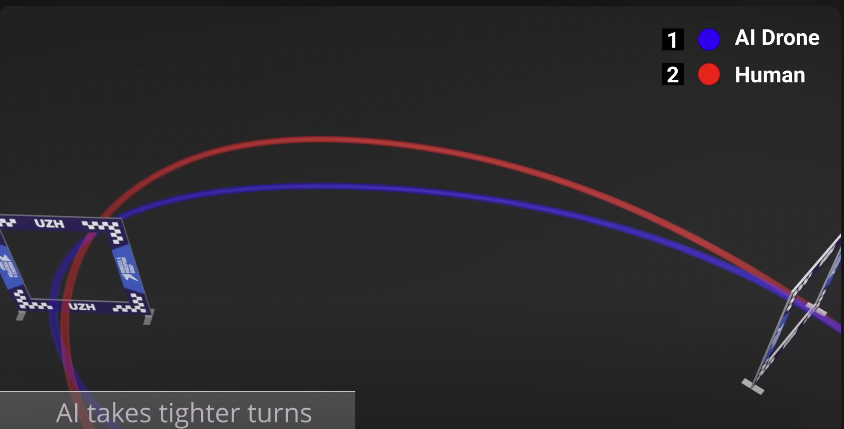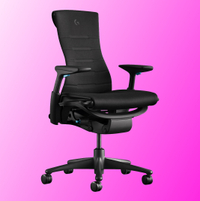Human drone racing champs get demolished by an AI
It's like playing against StarCraft 2 AI set to Insane difficulty.
Researchers at the University of Zurich have created a drone AI that was able to beat out the top human drone racers in the world (via Nature). Swift AI was able to master a course in a week, record the fastest lap times, and outperform the best drone racers from three different drone racing leagues in head-to-head races.
You might have seen drone racing on TV, an event where remote-controlled drones are flown by pilots wearing special visors with a first-person video feed from the drones' onboard camera race through a series of LED gates. It's chaotic, and watching little brightly colored quadcopters crash into gates never gets old.
Elia Kaufmann, one of the researchers who developed Swift AI, says its result "marks the first time that a drone powered by AI has beaten a human champion in a real physical sport designed for and by humans."
The way it works is that Swift sends video data from the drone's onboard camera to its neural network via an onboard module, which factors in the drone's position, orientation, and speed. This info is then fed to a second neural network that tells the drone what to do as it approaches each racing gate.
The human racers had one week to practice on the course while Swift ran simulations on a virtual version. Through deep reinforcement learning (the same technique used to train AI in Chess, Dota 2, and Starcraft 2) combined with real-world data, Swift could sort out the optimal routes and commands to give the drone by the time the week was over.
One important note is that training the AI relied heavily on trial and error, resulting in hundreds of crashes. Since it was a virtual course, the AI could simply restart and try again until it got it right. During the real-world race, the AI could even factor in dynamic changes in the environment.

The result is that the AI takes more consistent laps, resulting in tighter turns, shaving time off each lap, giving it a big advantage over its human rivals, who rely solely on quick reflexes and course memorization. Ultimately, the AI took 15 out of the 25 races against the trio of world champions and scored the fastest lap by nearly half a second.
Keep up to date with the most important stories and the best deals, as picked by the PC Gamer team.
Marvin Schaepper, one of the champions who competed against the AI-powered drones, explains the obvious disadvantage of racing against a non-human opponent.
He said, “It feels different racing against a machine because you know that the machine doesn’t get tired."
2019 Multi GP champ Max Bitmatta said the "possibilities are endless; this is the start of something that could change the whole world.”
Best chair for gaming: the top gaming chairs around
Best gaming desk: the ultimate PC podiums
Best PC controller: sit back, relax, and get your game on

Jorge is a hardware writer from the enchanted lands of New Jersey. When he's not filling the office with the smell of Pop-Tarts, he's reviewing all sorts of gaming hardware, from laptops with the latest mobile GPUs to gaming chairs with built-in back massagers. He's been covering games and tech for over ten years and has written for Dualshockers, WCCFtech, Tom's Guide, and a bunch of other places on the world wide web.



